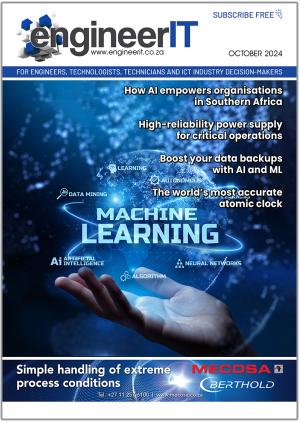The emergence of next-generation AI should not be seen as a direct threat to IT professionals, but rather as an opportunity to upskill and master the new technology. This is according to Admire Gwanzura, President of the Institute of Information Technology Professionals South Africa (IITPSA).

“In just a matter of months large language and natural language processing AI has gone from hype to free app, with OpenAI’s ChatGPT topping a million users in just 7 days – faster than any other application or platform ever released. We all knew it was coming, but the pace of change has been staggering – even for the IT sector,” he says.
Gwanzura says that while the technology is proving to be hugely resource intensive and is not yet mature, it is proving highly capable, and progressing fast.
He says: “What this means for the jobs of the future is that things will change. PWC expects AI to create more jobs than it eliminates, but it should be noted that many people are not yet equipped to fill the new roles that will emerge. The skills we have today may become obsolete in a matter of just a few years. Goldman Sachs expects AI to replace the equivalent of 300 million jobs, but at the same time, it could eventually increase the total annual value of goods and services produced globally by 7%. In South Africa, where skills are in short supply and labour costs are high, we expect to see employers harnessing AI to carry out everything from the mundane, routine tasks to the highly specialised ones.”
Last year’s JCSE – IITPSA ICT Skills Survey revealed that employers were struggling to find appropriate skills, and the number of employers recruiting specialised IT skills abroad has risen to 50%, (from 38% the year before). The survey found there was demand for deep skills in coding, development, project management, business analytics and data science. Gwanzura says: “AI can fill, or supplement many of these roles, and may become the de facto workers if employers continue to experience a skills gap.”
Prof. Barry Dwolatzky, Emeritus Professor and Director of Innovation Strategy at Wits University, and a co-author of the JCSE - IITPSA Skills Survey, noted that there was still a role for human IT professionals, however. Speaking at a recent IITPSA Careers in IT webinar, he recommended starting with a foundation of a broad computer science degree and continually upskilling to adapt to continual change in the sector. “I’m sad to say that before long, AI systems will soon be writing code better than humans can, but we will still need humans to innovate and transform business processes. People should prepare themselves for where they can contribute to innovation.”
Gwanzura says: “At the IITPSA, we agree. AI may change the landscape dramatically in the next few years, but humans still possess reasoning, creativity and problem-solving skills that AI doesn’t yet have. There will be a place for those who can identify problems, match them with technologies that can solve the problems, contextualise and create.
To stay relevant in a changing job market, IT professionals will have to be agile and adapt fast. We will have to develop a culture of continuous learning. Studying should not stop once a student graduates. We all need to remain curious and passionate about how emerging technologies can be deployed to address existing problems. If new tools and technologies emerge – we need to master them. Fortunately, many vendors and OEMs offer free training online, so that anyone who seeks knowledge can find it.”
He notes that IT professionals must remain cognisant of the importance of ethics in this fast-changing environment. “The ethics of AI will be determined by the humans who train it; so we will need to be cautious, and remember that the AI tools we develop today may control everyone’s lives tomorrow,” he says.















